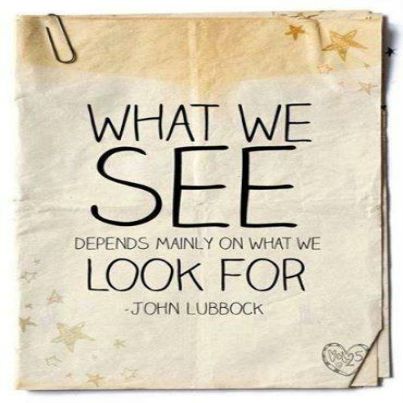|
It is more obvious than ever before that we are living in a VUCA world (volatile, uncertain, complex and ambiguous). Our reality is changing rapidly, and our ability to produce results that matter will require us to do things differently - in many cases, radically different.
We tend to rely on what has worked in the past. We are designed to recognize conditions that seem familiar, and then default to strategies that previously made us successful. We are wired to use what have always been our strengths, but we are not at all wired to notice when our strengths have somehow become limiting - our blind spots. Learning new ways to do the same things more effectively will not be enough. It is time to re-imagine what leadership can be, and to step up in ways that you can't even see yet. We can allow these challenging and difficult times to stop us in our tracks, or allow them to be powerful catalysts for personal and organizational development and growth. There is no shame in accepting that each of us face development gaps in our leadership. They are the inevitable consequences of leading successfully in an increasingly complex world. They are challenges that can be met and overcome if we work to evolve as leaders. "Leadership is a crucible", and we are being called upon to be creative and transcend our current levels of leadership. "Reality, as it is rather than as you wish it were, is a worthy crucible for your development." With change comes growth, if we allow it.
0 Comments
"To think creatively, we must be able to look afresh at what we normally take for granted."
Are there limiting beliefs you have about your yourself, your team, your organization, or your situation that are holding you back, keeping you from being able to move forward with clarity? We don't get what we want, we get what we focus on and expect. A great coach can help you look at your situations with a new and different perspective. Even though coaching has become a widely accepted, and even expected, practice in many organizations and among many executives seeking personal growth, there is the misconception with some that coaching is therapy. Coaching isn't therapy, it's product development....with you as the product! Growth and change are hard; the only thing harder is not growing or changing. Life isn't always easy...does that come as a shocker to you?? Of course not! We are all very aware that life can be challenging and, at times, downright difficult.
I am a thinker, and have to admit I have spent considerable time over the years pondering why we sometimes have to go through times like these. When these thoughts surface, I am reminded of the way vines (grapevines, blackberry vines...) have to be pruned back...Sometimes the pruning seems so severe you wonder how the vines will ever recover. Late this summer, I experienced a visual representation of this very thing. My husband and I have some blackberry vines growing along the garage in our backyard. Although they produced some yummy berries over the summer, many of the vines were unable to produce plump, juicy berries because the patch was thick and unruly and the vines were being choked out by weeds. I decided they needed to be pruned. Having never done this before, I did my research on how best to care for them and when to begin. I was shocked at how far back the experts recommended to cut them back, but I moved ahead with my pruning. When the process was complete, I looked at the pitiful patch of what looked like twigs that remained. How would they ever recover? At first glance, I think my husband was speechless and wondering what in the world I had done! Then, very calmly he said, "well, let's see what happens next." As the weeks have gone by, I can already see the vines are healthier and stronger. Although it looked so pitiful and painful, the pruning is giving the roots the strength they need to grow deep and strong. Even though winter is here, I can see the vines are beginning to bud with new life! When the vines recover, they will bear even MORE fruit and have the added strength to withstand storms and droughts. I believe life is exactly like this. I'm convinced we must undergo pruning times, too. Although it may seem to us that the pruning is too harsh and lasts too long, in time we emerge more productive, stronger and wiser. Whatever roadblock is holding you back is something that needs to be cut away. Maybe it is a limiting belief, a distraction, a paralyzing mindset, or fear. As human beings, we tend to cling to the familiar, even if it is pulling us down. It's time to let those things go. The journey itself it what prepares us to succeed at what we were born to do. Embrace the pruning and move forward. Why is Appreciation a good wise investment?
If you are a business manager or organizational leader, you may find these responses going through your mind: * Why should we be concerned about communicating appreciation to our employees? We pay them fairly! *They should be thankful they have a job! *We're running a business here. This isn't about 'hugs and warm fuzzies'; it's about providing goods and services while making a profit! While these statements are neither unusual or unreasonable for those responsible for the financial well-being of a business, having an accurate understanding of the concepts of appreciation and its role in successful organizations is important for leaders. Appreciation is not all about "making people feel good"; neither should it be used as a manipulation tool to achieve financial gains. When authentic appreciation is communicated, all stakeholders win - the employee, the leader, the organization, customers and clients. The ROI from training team members at all levels of the organization how to effectively show appreciation for one another is highly significant. It improves organizational functioning, decreases the loss of key team members, and creates a more positive workplace environment. If you are interested in learning more about the 5 Languages of Appreciation in the Workplace, contact me. I would love to work with your team in 2020. When a potential client asked recently how he would benefit from working with an executive coach, it was a good opportunity for me to reflect on the positive outcomes of coaching. It also made me realize that other people might also have this question but be hesitant to ask, since coaching has become such an accepted — even expected — practice at many companies.
If you, as the client, go into a coaching engagement with an open mind and a real willingness to grow, you can reasonably expect to reap these benefits: 1. See yourself more clearly. Research shows that most of us do not see ourselves very clearly - and it matters. Self-awareness in leaders is highly correlated with personal and organizational effectiveness and business profitability. Employees prefer to follow leaders who are transparent and see themselves clearly. When you engage with a good coach, they will gather input about how others see you at the beginning of the engagement and share it with you. They will work with you to clarify others' perceptions of your key strengths and growth areas. Your coach will help you build skills to see yourself more clearly; to question your assumptions and limiting beliefs about yourself and push you to get curious about where you're strong and where you need to grow. 2. See others more clearly. Sometimes leaders run into problems because of their inaccurate assessments of those around them. They may lose good employees because they don't recognize and support their capabilities, or keep poor performers too long because they think they're better than they are. A good and insightful coach can help you recognize limiting assumptions you make about people who aren't like you, and offer tools to support you in understanding and creating strong and vital working relationships with a wider variety of people. Because skilled coaches work to make their coaching clients independent , they will also help you apply the same mental skills you learned for seeing yourself more clearly so that you can become more accurate in your assessment of others. 3. Learn more ways to respond. We all have a set of capabilities and responses that may serve us well at our current level of leadership, but that won't help us as more senior leaders. An effective coach will work with you to shift your mindset and learn the necessary skills so that you have new, more useful tools in your leadership repertoire to reach the next level in your life and career. 4. Leverage your existing strengths. Having an effective and supportive coach can also help you see and leverage strengths that you already have but that you may be underestimating 5. Clarity of Goals and Dreams. This is the bottom line for an effective coaching engagement. A good coach can help you get clearer about your goals and dreams, and about what you're capable of doing in order to achieve them. They can be a powerfully useful support system on your journey: someone who knows you very well and wants the best for you — but is a neutral third party. Unlike your family or your employer/employees, your coach isn't dependent on you for their success. They can be honest with you about how you're doing, reminding you of what you've said you want to achieve and letting you know what you're doing that's supporting your intentions — or getting in your way. Finally, and most importantly, your coach can help you identify new ways of thinking and operating, that will allow you to better reach your goals and create the life and career you want. If you are ready to do the hard work of self-reflecting and discovering how to be your best self, then Executive Coaching is for you. Your relationship with your coach is just that - a relationship. They participate in the conversation, asking questions and providing insights and resources to help you develop. Show up, be fully present and open, and you will find your coaching relationship can be a powerful catalyst to becoming the person you most want to be. |
Details
AuthorKim Dudash ArchivesCategories |




 RSS Feed
RSS Feed